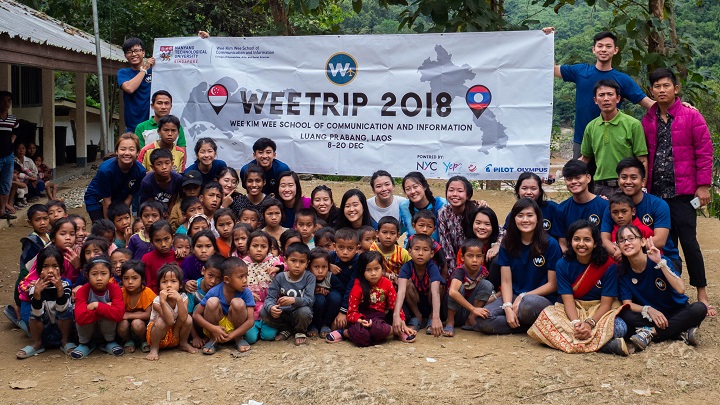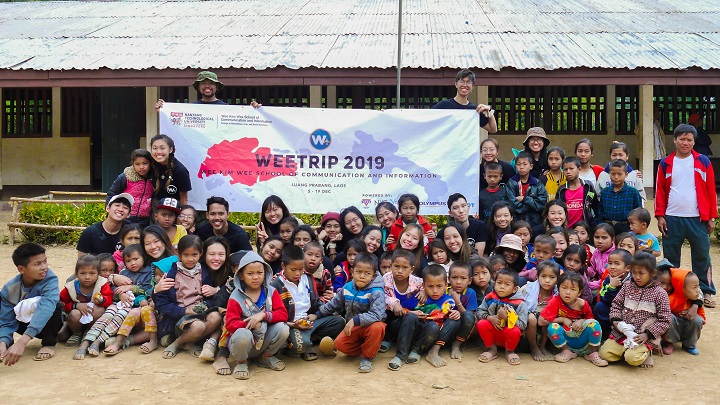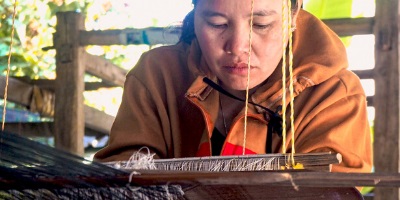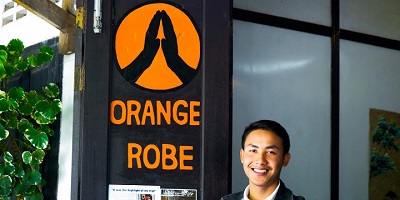Published 24th March 2020
Although I was part of WeeVolunteer’s first executive committee (EXCO) in 2018, I was not thrilled that WeeTrip, the school’s overseas community involvement programme (OCIP), would continue.
I have always felt strongly against volunteering overseas. Scroll through Instagram and you’ll find it saturated with self-indulgent selfies of volunteers and village kids, coupled with “feel good” captions patting themselves on the back. I just didn’t see the point.
December 2018: I was about to embark on my first overseas volunteering project, although I felt very reluctant after being outvoted by my EXCO four to one. While I was not excited like the others, I was determined to set WeeTrip apart from the conventional OCIP.

Instead of the typical two weeks, we spent only one in Ban Houehin, a village four hours away from Luang Prabang by boat to build a water filter. This gave us another week to conduct our journalism project in the city, where we would interview locals and film for our documentaries.
In the village, I tried not to interact much with the kids. Even when we taught English, I stayed detached. I just did not want them to grow any feelings of attachment to someone who will only be there for a week.
And there were more pressing things to anticipate, like the second part of our project in the city.
True enough, chasing leads and shooting documentaries in a very unfamiliar city, with hopes of shedding light on the underprivileged communities there, was not an easy feat.
But our goal has always been to impact more than just one village.
When we returned home, the hard work did not stop. While our project lasted two weeks in Laos, it extended for another two months back in Singapore. It was definitely tiring, but the old way of running OCIP trips just didn’t cut it for us.
One year later, I decided to lead WeeTrip again, this time as the chairperson.
Thus, in December 2019, my team spent a day visiting other projects in other villages. We witnessed half-built staircases and solar panels that no longer worked.

Even the water filter we built last year had stopped working because of water pressure issues. But we only found out about the issue after we checked in with the village chief in October last year. We may have brought a new pipe to help them repair it, but that was nine months after it stopped working.
This begs the question: Are we as volunteers responsible for ensuring the sustainability of the things we built for the villagers?
I would say to a certain degree, yes. If we cannot complete something, we should be sending another team there to finish it. We should check in to ensure that the things we built for the villages are in working condition.
Even little things like ensuring that your school or hall of residence’s projects routinely return to the same community and continue to uplift the community before moving on to the next village can help create a more sustainable volunteering system.
And while the villagers might not understand most of the words we say, that does not mean that we should be using coarse language in front of them, because evidently, the kids will pick it up.
Our impact can be felt. Our impact can be real. But we should be more conscious in ensuring that our volunteering projects are both sustainable and conducted properly.
For example, multiple teams go to the same village to “teach” English. But only the same basic phrases are taught because nobody checks in to see if the students had already learnt those phrases.
WeeTrip prides itself on putting in the extra effort to go back to the same community, building on what we already have established the year before.
We are not perfect and we will continue to change and improve our programmes. But we hope that more teams can join us in our efforts to ensure volunteerism, local or overseas, is more sustainable. ∎



 Wee Kim Wee School
Wee Kim Wee School